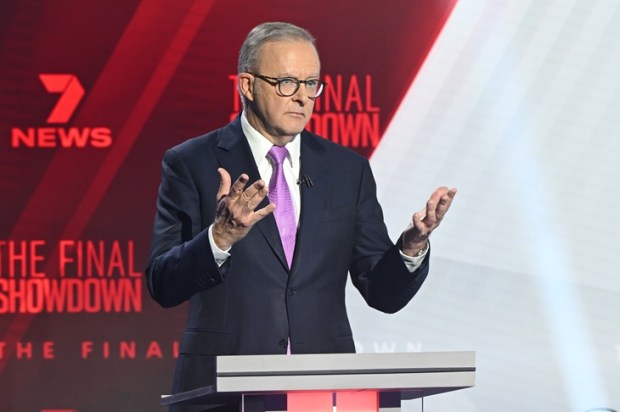For many decades after Federation, the voting age for Australians was 21 – even when soldiers under the age of 21 were fighting in wars.
In 1973, the Whitlam government lowered the voting age to 18, and today, it is widely considered the standard minimum age for participating in national elections across Western democracies.
Victorian MP Monique Ryan, however, has called for Australia to follow the lead of UK Prime Minister Keir Starmer’s Labour government, which has pledged to lower the voting age to 16. Ryan says she will introduce a private member’s bill to reduce the federal voting age in Australia from 18 to 16, citing the importance of giving young people a voice on issues that will shape their future.
Arguments for lowering the voting age based on inclusivity may sound appealing, but they overlook a fundamental truth: voting is a serious civic responsibility that demands emotional maturity, critical thinking, and a working knowledge of our democratic system. It is not a lifestyle accessory or a reward for enthusiasm.
One of the most common justifications for lowering the voting age is the claim that teenagers are politically active, socially aware, and already contributing to society – so why not let them vote? Movements like School Strike 4 Climate are held up as evidence of civic engagement.
But behind all this sentiment lies a real problem.
It is illegal for 16-year-olds to get a tattoo, buy alcohol or tobacco, or watch an X-rated movie, and for good reason. Protesting might reflect passion, but being loud is not the same as being literate.
Protesting does not demand an understanding of policy trade-offs, parliamentary processes, or representative government. And you can’t meaningfully critique a system you don’t understand.
The most recent National Assessment Program – Civics and Citizenship report shows that only 38 per cent of Year 10 students met or exceeded the proficient standard in civics knowledge. That means more than 60 per cent of students nearing voting age lack a basic understanding of how government works, how laws are made, or what democratic participation entails. If the majority of 16-year-olds cannot meet Year 10 civics standards, how can they be entrusted with a vote that helps shape the nation?
Without a firm civic foundation, encouraging protest as a political outlet risks replacing principle with passion, and substance with slogans. Civics education is not about handing students placards. It is about giving them tools – tools to analyse policies, distinguish between levels of government, evaluate parliamentary checks and balances, and understand the values that underpin liberal democracy.
Encouraging political expression without this foundation isn’t education – it’s indoctrination. And extending voting rights to students shaped more by activist sentiment than civic understanding risks undermining the very system they are being invited to join.
While many adults also lack sufficient civic knowledge, that doesn’t justify lowering the standard further. Two wrongs don’t make democracy stronger.
There is a reason most adult responsibilities begin at age 18 or later. Voting is not a measure of enthusiasm – it requires maturity, and judgment. Developmental psychologists and neuroscientists agree that the prefrontal cortex – the part of the brain responsible for long-term reasoning and decision-making – does not fully develop until the mid-20s. This doesn’t mean 16-year-olds are unintelligent. It means they are still developing the capacity for rational, considered decision-making – precisely the kind of thinking that voting requires. Driving a car or working part-time is not equivalent to choosing who governs the country. The former is a technical skill; the latter is a civic act that affects laws, institutions, and the national direction.
Australia does not simply need more voters – it needs better-prepared ones. If we genuinely want young Australians to become engaged citizens, the answer is not to lower the voting age. It is to fix civics education and make politics and democratic understanding a compulsory part of secondary schooling. Let’s set the expectation that every school-leaver can explain how Parliament functions, how preferential voting works, and what the Constitution says.
If we are going to open the question of voting eligibility, perhaps we might also consider then, contribution – not just age. A more honest debate might well ask whether voting rights should be tied to net tax contribution. That is, should civic participation be granted equally to those who fund government services and those who primarily receive them?
This may seem provocative, but it reflects a basic democratic principle: rights come with responsibilities. Taxpayers fund the public goods and services that governments distribute. Perhaps ‘skin in the game’ is a more meaningful civic threshold than mere proximity to adulthood or placard waving interests.
Policy should not be shaped by the activism of a politically engaged minority, but by the readiness and maturity of the broader group. Democracy is too important to dilute in the name of so-called ‘inclusivity’.
Before we lower the age to vote, let’s expand civic competence. Until then, the voting age should remain right where it is: at 18.
Colleen Harkin is the Director of the Institute of Public Affairs’ Schools Program

























